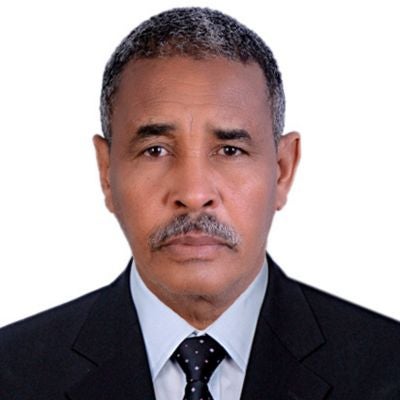
Collecting Sudan
This panel explores the intersection of digital humanities and cultural preservation. The speakers explore the politics and possibilities of collecting, curating, and archiving Sudan’s tangible and intangible culture. As war threatens archives, museums, and historical sites, questions of ownership, access, and preservation become increasingly urgent. Particular attention is paid to community-driven archival practices, as well as decolonial methodologies defining the future of Sudan’s cultural legacy. This panel interrogates who owns culture, who gets access to it, and how communities can take charge of their own storytelling.
Speakers:

Wahbi Abdalfattah Abdalrahman is the Director of the Nile Valley Centre of Documentation and Ethnographic Studies at Nile Valley University. He has lectured across multiple faculties and served as Editor-in-Chief for various academic journals. He has collaborated with teams from Dongola University to digitize historical documents and manuscripts and implemented Koha and DSpace systems across Sudan and neighboring countries. He has held key administrative roles, including Deputy Dean of Libraries and leading the Sudan Memory Project team in River Nile State. His career spans decades of leadership in documentation, digitization, and library sciences.

Marilyn Deegan is Emeritus Professor of Digital Humanities at King’s College London and the Project Leader for the renowned digital archive Sudan Memory since 2013. Originally a mediaevalist, she has worked for 30 years on projects in digital humanities and digitization for cultural institutions, in Europe, the USA, Rwanda, Ethiopia, and Sudan. She was the founding director of Forced Migration Online: a World of Information on Human Displacement, and for 17 years she edited LLC: the Journal of Digital Humanities. She has written and edited many books on digital humanities and digitization, and published numerous articles. She has also been highly successful as a fundraiser for digital projects, having raised more than £12 million pounds over the last 20 years. She is a keen photographer and in 2008 published Being a Pilgrim: Art and Ritual on the Medieval Routes to Santiago, with medievalist Kathleen Ashley, containing 250 original photographs taken over several years.

Suha Hasan is an architect and the founder of ASH, an architecture practice based in Sweden. She is the founder of Mawane, a platform for urban research based in Bahrain, and a founding member of the MSc Modern Sudan Collective. She is the head of the AA Visiting School Climate Cartographies, which explores the intersection of architecture and the environment. She has served as a consultant for UNDP Sudan, Sharjah Triennale, and Bahrain Authority for Culture and Antiquities. She is the research editor for the award-winning publication Places of Production (2016), and her recent publications include Moments of Architecture: Nation-Building in Sudan and the editing of Urgent Pedagogies: Climate Cartographies. Her current research explores obscure histories, material conditions, and environmental impacts connected to the built environment, specifically archaeological and heritage sites. She co-founded the Docomomo International Chapters in Bahrain and Sudan and serves as a board member and advisor in both chapters.

Ala Kheir is a photographer and educator whose work explores personal narratives and social change in Sudan. He is actively engaged in Sudanese photography archives, researching, restoring, and exhibiting the works of photographers like Elsharif Aboud and Abbas Habiballah. He is the founder of The Other Vision (TOV), a photography platform dedicated to education and training in Sudan, connecting young photographers with the broader African photography community. He has also collaborated with the Centers of Learning for Photography in Africa in Johannesburg. He serves as the World Press Photo 2025 Africa Jury Chair and has been a jury member for the Contemporary African Art Prize since 2018.
Moderator:

Ahmed Abushouk is a Professor of Modern and Contemporary History at Qatar University. Previously, he worked at Bergen University and the International Islamic University Malaysia. He has authored and edited more than 25 books and 70 peer-reviewed articles. His latest publications include The Sudanese Revolution (2018-2019): Its Motives, Phases and Challenges (2021), The Historian: Yusuf Fadl Hasan: The Sagacious Accomplishment and All-Embracing Contributions (2023), and The Sudanese Peace Agreements (1972-2020): An Analytical and Documentary Study on Juba Peace Agreement of the Sudan (2025).